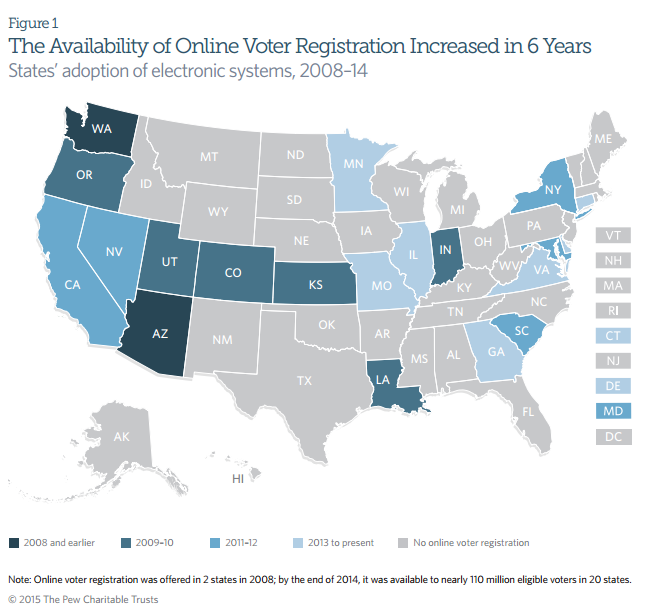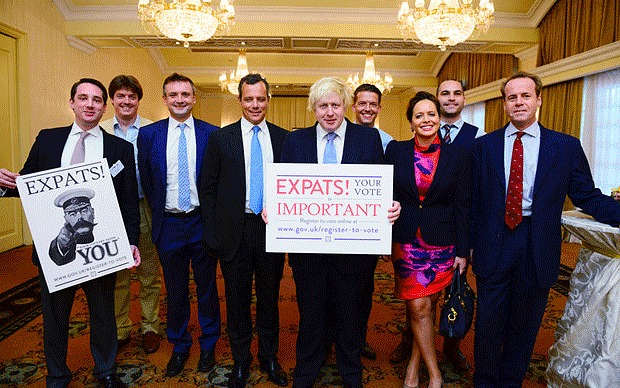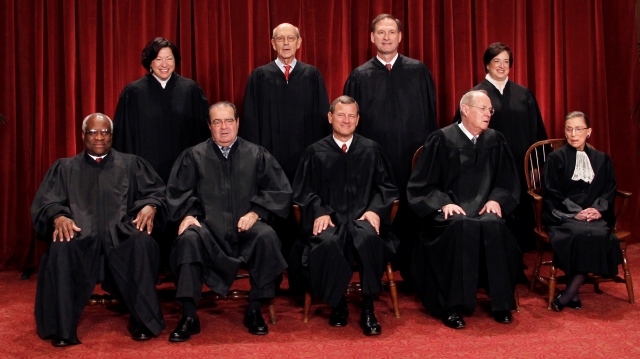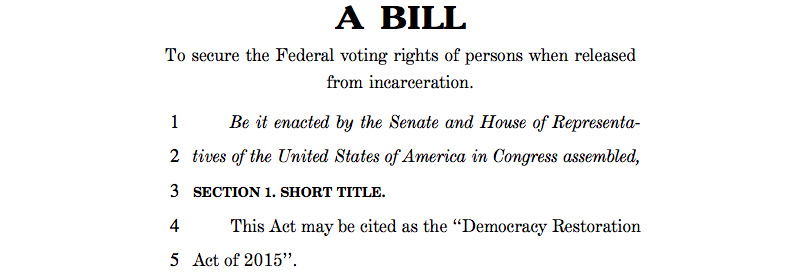VoterFraudFacts.com is a free informational website, nothing on our site should be taken as professional legal advice, medical advice, or tax advice..
Privacy. This website (VoterFraudFacts.com) uses web tools that collect basic web data to help us improve user experience. See advertisers ad policy when interacting with ads.
Important. VoterFraudFacts.com is privately owned and is not owned or operated by the US federal or state government. We are not affiliated with the official Health Insurance Marketplace HealthCare.Gov.
Please Read the Following Legal Info
The following legal info of use (the “Legal Info”) govern your use of the VoterFraudFacts.com site (the “Site”). The Site is made available by Dog Media Solutions LLC (the “Site Proprietor” or “we”). BY USING THE SITE, YOU ACCEPT AND AGREE TO THIS LEGAL INFO AS APPLIED TO YOUR USE OF THE SITE. If you do not agree to this Legal Info, you may not access or otherwise use the Site. We may change the Legal Info from time to time, and at any time without notice to you, by posting such changes on the Site. By using the Site following any modifications to the Legal Info, you agree to be bound by any such modifications to the Legal Info.
You may only use the Site if you are domiciled in the United States and you are 18 years old or older.
. Services Available on the Site. Via the Site, we provide a service by which consumers can apply to receive insurance or discount program quotations from our network of insurance agents, brokers, discount program representatives and other service providers. We seek to provide valuable information that individuals can use to make their own decisions about insurance and discount programs. Once you provide us with the information needed to complete an on-line application, we will attempt to match you with appropriate insurance agents, brokers, discount programs or other companies.
We do not issue insurance contracts or bind coverage. We do not endorse or recommend any companies or insurance policies, and we do not provide insurance, tax or financial advice. We do not guarantee that any of the insurance agents, brokers and/or companies to whom we forward your application will contact you or agree to provide you coverage. We are not responsible in any way for the conduct of the insurance agents, brokers, discount program representatives and companies that are matched with your on-line application. If you would like personal advice or specific policy recommendations, you should consult with an insurance agent, broker, or other qualified professional.
We reserve the right, for any reason, in our sole discretion, to terminate, change, suspend or discontinue any aspect of the Site, including, but not limited to, content, features or hours of availability. We may also impose limits on certain features of the Site or restrict your access to part or the entire Site without notice or penalty.
There is no charge to you for use of the Site.
. Proprietary Rights. As between you and the Site Proprietor, the Site Proprietor owns, solely and exclusively, all rights, title and interest in and to the Site, all the content, code, data and materials thereon, the look and feel, design and organization of the Site, and the compilation of the content, code, data and materials on the Site, including but not limited to all intellectual property and proprietary rights therein. Your use of the Site does not grant to you ownership of any content, code, data or materials you may access on the Site. Any commercial use or exploitation of the Site is strictly prohibited. You may view the content on the Site on your personal computer or other internet-compatible device, and make single copies or prints of the content on the Site for your personal, non-commercial use only. You may not otherwise copy, reproduce, distribute or otherwise exploit any content, code, data or materials on the Site. If you make other use of the Site, except as otherwise provided above, you may violate copyright and other laws of the United States, other countries, as well as applicable state laws and may be subject to liability for such unauthorized use. We do not grant any license or other authorization to any user of our trade names, trademarks, service marks or other marks or logos without our separate express written agreement. Third party marks are the property of their respective owners.
. User Submissions. In the course of your use of the Site, you may be asked to provide, or you may provide on your own inclination, information or materials to us (such information and/or materials referred to hereinafter as “User Submissions”). User Submissions include, for example, information you submit to us via your application to receive quotations (“Application Data”). User Submissions also include information and materials you submit to us via other on-line forms on the Site, by e-mail, or in any other manner via the Site. Our information collection and use policies with respect to the privacy of personal information (with the exception of testimonials, which may be used as set forth in Section 4, below) are set forth in the Site’s Privacy Policy which is incorporated herein by reference for all purposes. Please read our Privacy Policy before submitting any User Submissions. You acknowledge and agree that you are solely responsible for the accuracy and content of the User Submissions. We cannot be responsible for maintaining any User Submissions that you provide to us, and we may delete or destroy any such User Submissions at any time. We reserve the right to refuse to post or to remove any User Submissions, in whole or in part, that, in our sole discretion, are unlawful, unacceptable, undesirable, inappropriate or in violation of this Legal Info.
. User Conduct. You warrant and agree that, while using the Site, you shall not upload, post or transmit to or distribute or otherwise publish through the Site any materials that: (a) are protected by copyright, or other proprietary or intellectual property right, without first obtaining permission from the proprietary or intellectual property rights holder; (b) are unlawful, threatening, harassing, profane, tortious, defamatory, vulgar, obscene, libelous, deceptive, fraudulent, contain explicit or graphic descriptions or accounts of sexual acts (including but not limited to sexual language of a violent or threatening nature directed at another individual or group of individuals), invasive of another’s privacy or hateful, (c) restrict or inhibit any other user from using and enjoying the Site, (d) constitute or encourage conduct that would constitute a criminal offense or give rise to civil liability, or (e) contain a virus or other harmful component, advertising of any kind, or false or misleading indications of origin or statements of fact.
You also warrant and agree that you shall not: (a) impersonate any person or entity or misrepresent your affiliation with any other person or entity; (b) upload, post, publish, transmit, reproduce, distribute or in any way exploit any information or other material obtained through the Site for commercial purposes; (c) engage in spamming, flooding, harvesting of e-mail addresses or other personal information, spidering, “screen scraping,” “database scraping,” or any other activity with the purpose of obtaining lists of users or other information, or send chain letters or pyramid schemes via the Site; or (d) attempt to gain unauthorized access to other computer systems through the Site. You agree that you will not use the Site in any manner that could damage, disable, overburden, or impair the Site or interfere with any other party’s use and enjoyment of the Site. You may not obtain or attempt to obtain any materials or information through any means not intentionally made available or provided for through the Site.
You agree to defend, indemnify and hold the Site Proprietor and its directors, officers, employees, agents and affiliates harmless from any and all claims, liabilities, costs and expenses, including reasonable attorneys’ fees, arising in any way from your misuse of the Site, your placement or transmission of any message, content, information, software or other materials through the Site, or your breach or violation of the law or of this Legal Info.
. DISCLAIMER OF WARRANTIES. THE SITE, INCLUDING, WITHOUT LIMITATION, ALL SERVICES, CONTENT, FUNCTIONS AND MATERIALS, IS PROVIDED “AS IS,” “AS AVAILABLE”, WITHOUT WARRANTY OF ANY KIND, EITHER EXPRESS OR IMPLIED, INCLUDING, WITHOUT LIMITATION, ANY WARRANTY FOR INFORMATION, DATA, DATA PROCESSING SERVICES, OR UNINTERRUPTED ACCESS, ANY WARRANTIES CONCERNING THE AVAILABILITY, ACCURACY, USEFULNESS, OR CONTENT OF INFORMATION, AND ANY WARRANTIES OF TITLE, NON-INFRINGEMENT, MERCHANTABILITY OR FITNESS FOR A PARTICULAR PURPOSE, AND WE HEREBY DISCLAIM ANY AND ALL SUCH WARRANTIES, EXPRESS AND IMPLIED. WE DO NOT WARRANT THAT THE SITE OR THE SERVICES, CONTENT, FUNCTIONS OR MATERIALS CONTAINED THEREIN WILL BE TIMELY, SECURE, UNINTERRUPTED OR ERROR FREE, OR THAT DEFECTS WILL BE CORRECTED. WE MAKE NO WARRANTY THAT THE SITE WILL MEET USERS’ REQUIREMENTS. NO ADVICE, RESULTS OR INFORMATION, WHETHER ORAL OR WRITTEN, OBTAINED BY YOU FROM US OR THROUGH THE SITE SHALL CREATE ANY WARRANTY NOT EXPRESSLY MADE HEREIN. IF YOU ARE DISSATISFIED WITH THE SITE, YOUR SOLE REMEDY IS TO DISCONTINUE USING THE SITE.
YOU SHOULD NOT RELY ON THE SITE TO MAINTAIN ANY USER SUBMISSION; YOU SHOULD RETAIN ALL SUCH DATA AND INFORMATION IN YOUR OWN RECORDS FOR USE IN THE EVENT THAT THE SITE FAILS OR IS UNAVAILABLE, OR THE DATA OR INFORMATION IS LOST.
. LIMITATION OF LIABILITY. IN NO EVENT SHALL THE SITE PROPRIETOR OR ANY OF ITS DIRECTORS, OFFICERS, EMPLOYEES, AGENTS, AFFILIATES, OR CONTENT OR SERVICE PROVIDERS (COLLECTIVELY, THE “PROTECTED ENTITIES”) BE LIABLE FOR ANY DIRECT, INDIRECT, SPECIAL, INCIDENTAL, CONSEQUENTIAL, EXEMPLARY OR PUNITIVE DAMAGES ARISING FROM, OR DIRECTLY OR INDIRECTLY RELATED TO, THE USE OF, OR THE INABILITY TO USE, THE SITE OR THE CONTENT, MATERIALS AND FUNCTIONS RELATED THERETO, OR ANY APPLICATIONS, INCLUDING, WITHOUT LIMITATION, LOSS OF REVENUE, OR ANTICIPATED PROFITS OR LOST BUSINESS OR LOST SALES, EVEN IF SUCH PROTECTED ENTITY HAS BEEN ADVISED OF THE POSSIBILITY OF SUCH DAMAGES. SOME JURISDICTIONS DO NOT ALLOW THE LIMITATION OR EXCLUSION OF LIABILITY FOR CERTAIN DAMAGES SO SOME OF THE ABOVE LIMITATIONS MAY NOT APPLY TO CERTAIN USERS. IN NO EVENT SHALL THE PROTECTED ENTITIES BE LIABLE FOR OR IN CONNECTION WITH ANY CONTENT POSTED, TRANSMITTED, EXCHANGED OR RECEIVED BY OR ON BEHALF OF ANY USER OR OTHER PERSON ON OR THROUGH THE SITE.
. Links from and to the Site. You acknowledge and agree that we have no responsibility for the accuracy or availability of information provided by Web sites to which you may link from the Site (“Linked Sites”). Links to Linked Sites do not constitute an endorsement by or association with us of such sites or the content, products, advertising or other materials presented on such sites. We do not author, edit, or monitor these Linked Sites. You acknowledge and agree that we are not responsible or liable, directly or indirectly, for any damage or loss caused or alleged to be caused by or in connection with use of or reliance on any such content, goods or services available on such Linked Sites.
. Applicable Laws. We control and operate this Site from our offices in the United States. We do not represent that materials on the Site are appropriate or available for use in other locations. Persons who choose to access this Site from other locations do so on their own initiative, and are responsible for compliance with local laws, if and to the extent local laws are applicable.
. Miscellaneous. The Legal Info and the relationship between you and us shall be governed by the laws of the State of Washington without regard to its conflict of law provisions. You agree that any use of action that may arise under the Legal Info shall be commenced and be heard in the appropriate court in the State of Washington. You agree to submit to the personal and exclusive jurisdiction of the courts located within the State of Washington. Our failure to exercise or enforce any right or provision of the Legal Info shall not constitute a waiver of such right or provision. If any provision of the Legal Info is found by a court of competent jurisdiction to be invalid, the parties nevertheless agree that the court should endeavor to give effect to the parties’ intentions as reflected in the provision, and the other provisions of the Legal Info remain in full force and effect. You agree that regardless of any statute or law to the contrary, any claim or cause of action by you arising out of or related to use of the Site or the Legal Info must be filed by you within one (1) year after such claim or cause of action arose or be forever barred.



